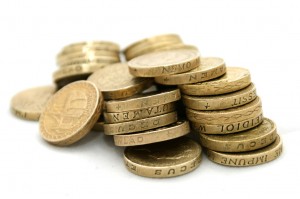March 28, 2012
 One of the things that people find little success with is budgeting. No matter how hard they try, the ability to make both ends meet seems to be elusive for most people. The sight of fashionable clothes, the latest gadgets, vacation in the island is simply too tempting to pass up. Finding it hard to budget your expenses? Here are some tips on how you can master the art of making both ends meet.
One of the things that people find little success with is budgeting. No matter how hard they try, the ability to make both ends meet seems to be elusive for most people. The sight of fashionable clothes, the latest gadgets, vacation in the island is simply too tempting to pass up. Finding it hard to budget your expenses? Here are some tips on how you can master the art of making both ends meet.
Before learning how to budget, try to determine the reasons for not being able to meet your budget. There are plenty of reasons for such failure. For one, you might not have prioritized your expenses. Come up with a list and then sort them from the most important to the least important. Likewise, determine which is discretionary expenses. These are items that you usually buy but can afford to live without.
Food and shelter should be on the top of your list. These are basic needs that support your survival. The next most important are the utilities such as water and electricity. A car loan is discretionary expenses because it is part of your budget but you can live without it. Unnecessary expenses should be at the bottom of your list.
After you have listed down your priorities, classify them into monthly and weekly expenses. While learning how to budget, you will come to the realization that your expenses will be greater than your income. Deduct the expenses from the income and you will come up with your potential savings for the month.
To cut down on your expenses, you need to take away your bad habits. If you have a vice such as smoking or drinking, it could also affect your budget plan. Reduce your intake of alcohol or cigarettes and you will see your expenses come down. Doing this will also have some beneficial effects on your health.
There are many ways you can cut down on your expenses. For example, rather than buy coffee from Starbucks, buy a coffee maker or travel mug and make your own coffee instead. If you are living in an expensive apartment, consider moving to a smaller unit. If you are going to a location just a few blocks away from your house, why don’t you walk instead? You will not only reduce your gasoline expenses but also get some form of exercise.
For credit card bills, always contact the credit card company if you will be unable to pay your bills on time. Explain to them your current situation. I am sure they will be able to help you out in coming up with a more affordable payment plan.
Personal budgeting entails supplementing your income and reducing expenses. This way, you will be able to better manage your personal finances. However, if your financial problem is already overwhelming and budgeting is no longer working, it is best to seek professional help.
Perhaps the best advice for learning how to budget is to live within your means. If you cannot afford to have an LCD or plasma television, a standard cable television will suffice. Bear in mind that success will not come in a blink of an eye. You need to work hard until you are able to master the art of budgeting.
Tags:
Budget Planning,
budgeting,
financial planning,
Makre Monay,
money savings
March 27, 2012
 When it comes to finances many people bury their head in the sand and spend up to, or over their means every month without considering the future. If people are happy with their lot and lifestyle then this is not necessarily a bad thing – so long as debt is kept under control.
When it comes to finances many people bury their head in the sand and spend up to, or over their means every month without considering the future. If people are happy with their lot and lifestyle then this is not necessarily a bad thing – so long as debt is kept under control.
However, of course the majority of people have dreams and aspirations for which healthy finances are helpful or even vital. The average person could never save up for a house deposit, for example, without cutting down on outgoings and planning ways to conserve funds. Such a person would also need a good credit rating to secure a mortgage, which they may not have if they live on credit and are constantly in debt.
There are numerous benefits to having one’s finances in order. This reduces the stress and anxiety that go with unmanaged debt and therefore leads to a greater sense of ease and comfort. It is also good to know that some money is put aside in savings or investments, for a rainy day or perhaps to make a large purchase such as a property. With the advantages of financial planning in mind, here are 5 tips that are well worth considering:
1) Pay off credit cards
Credit cards carry high interest rates so if the balance is not paid off each month, they can incur considerable interest. Making minimum payments will barely touch the outstanding balance either, so credit cards should be paid off completely as soon as possible. Sometimes low interest loans are the best way to do this, but a banking manager should be able to suggest a suitable plan of action.
2) Reassess outgoings
An effective way of saving money is simply to cut outgoings. Many people are in a habit of spending more than they need to, so by reassessing what they spend each month they will most likely be able to find several areas where savings are possible. People should check direct debits and if they are not necessary or beneficial, stop them immediately.
3) Use an ISA
An ISA is a way to save up to £3000 in a tax free account and this benefits savers much more than a regular savings account. People should choose an ISA if they are saving and use their full ISA allowance to maximize its effectiveness.
4) Get a pension
This is certainly an area that many young people ignore, but this could be to their financial peril in the years to come. A pension is a vital form of financial planning and there are a variety of products available, offering facilities such as pension release and drawdown. Anyone wanting a comfortable retirement should ponder their future without a pension.
5) Make a will
Making a will is another area that people often ignore, perhaps unaware of the possible consequences of dying intestate. Making a will ensures that someone’s money and assets goes to the people they want it to, and stipulations can be included in a will if the donor wishes. A will is not a death wish, merely a shrewd financial precaution.
Tags:
finance,
financial planning,
Financial Tips,
money,
personal finance,
savings,
Tips
March 26, 2012
 If you keep listening to your friends you will keep your day job, keep working for 30 years each and every day and not make serious money and you know why? Because your friends think trading stocks and Forex is nothing but luck and gambling and they can’t be more wrong.
If you keep listening to your friends you will keep your day job, keep working for 30 years each and every day and not make serious money and you know why? Because your friends think trading stocks and Forex is nothing but luck and gambling and they can’t be more wrong.
In this article I will share with you a few important tips that will help you make money trading stocks and currencies, so take a pen and a paper and write this down because all the professional traders in the world started using these tips and you should too if you want to make money.
Trade with an amount of money that suits you
At first trading will be difficult and you may lose some money before you get the grasp of it and understand the market and that’s natural. That is why you should trade with an amount of money that suits you as a trader and that means trading with the amount you don’t afraid of losing. I know how it sounds but if you’re afraid of losing you will lose because you will make decisions according to your emotions and not your head and you will lose money, so at first trade with a small amount of money and slowly with time add more money to your trading bankroll.
Always come prepared to any trading day
You should always come prepared prior to any trading day and that means working for 2-3 hours each day searching for stocks and currencies, writing down the entry and exit points of each stock and never leave anything to chance. Only this way you’ll control your bankroll, know exactly how much you’ll profit from a trade and limit your losses to a minimum if the trade was not successful.
Trade with your head and not with your gut
Trading stocks and Forex has nothing to do with luck and we are not gambling here. You read charts, you analyze them, you read news and you know your entry and exit points and with this analytical work plan you make money. If you start trading according to your emotions and gut feelings you may make mistakes and lose money, so always trade smart and don’t let your feelings get involve in your trade but this will come with more trades and experience.
Be patient learn from mistakes and never stop reading charts
If I have one tip to give you in order to succeed in trading is to read as many charts as you can. The more charts you read the more you’ll understand how the market and how the stocks react, you’ll know to anticipate the next move of your stocks and currencies and you’ll have more experience in trading and here it means a lot. Even when you don’t trade keep reading charts, see if you’re right and with time you will master the market and in less than 3-4 years will be able to be a professional trader and believe me this is not a long time as professional traders usually are millionaires because there is a lot of money in the market and with time you will get your piece of it as well.
Tags:
economy,
Forex,
forex trading,
Makre Monay,
money,
stock,
stock trading,
Trading
March 25, 2012
 When you or someone you love has been arrested, emotions can run high. Instead of getting concerned and worrying about “worst case” scenarios, educate yourself about the bail process.
When you or someone you love has been arrested, emotions can run high. Instead of getting concerned and worrying about “worst case” scenarios, educate yourself about the bail process.
Here are three myths about bail debunked.
1. If a family member can’t pay your bail bond, you stay in jail.
Although a family member is allowed to post the money required for your bail (if any), you can also have friends take care of this for you.
The basics of bail are fairly simple. You are innocent until proven guilty, so after your arrest, the court must gather evidence to convict you of wrongdoing. Likewise, you are allowed to obtain a lawyer to defend you. Bail is a document that states you can be set free on the condition that you will return for your court date(s). You may have to pay a certain amount of money for bail as a deposit of sorts. This increases the likelihood that you will return to court if there’s a good reason why you may not want to.
A family member or friend that pays the amount requested for your bail bond is called a guarantor. This person is responsible financially if you do not come back to court for trial (of course, you are also legally responsible for deciding not to return, too).
2. There is no rhyme or reason to bail amount.
This is untrue, too. The court has many reasons for setting bail at the amount they choose to set it at. One factor in determining bail is the severity of the crime. If a crime is very minor, there may not be any money required for a bail bond. If the crime is more serious, the amount can be hundreds of thousands of dollars or more. Also, the court may consider the evidence, as well as your general character and past criminal record when determining bail amounts.
3. You have to come up with the whole bail amount.
This is one of the biggest misconceptions about bail and bail bonds. The only time you have to come up with the total sum requested for bail is if you “skip” bail, or do not show up in court when you are required to. If you do what’s asked of you, typically only ten percent or so of the total amount needs to be paid to the bail bond agent.
Tags:
Bail,
Bail Bonds,
Bailout,
Family,
finance,
Law
March 24, 2012
 South Korea has reached a significant financial milestone, with the country’s foreign reserves hitting a record high. This may be encouraging news to exporters in South Korea, who like exporters throughout Asia are currently facing the challenge of a slump in demand – but what exactly are foreign reserves, and how does this development affect South Korea’s global financial position?
South Korea has reached a significant financial milestone, with the country’s foreign reserves hitting a record high. This may be encouraging news to exporters in South Korea, who like exporters throughout Asia are currently facing the challenge of a slump in demand – but what exactly are foreign reserves, and how does this development affect South Korea’s global financial position?
About Foreign Reserves
Foreign exchange reserve (or forex reserve) is a term used to describe the total amount of foreign currency deposits and bonds held by a country’s financial authorities and central banks. The purpose of official foreign currency reserves is to ensure that a country’s central bank can purchase the domestic currency (despite the fact that it is considered a liability) and in so doing, stabilise that currency’s value. China is currently home to the world’s largest foreign exchange reserve; other top countries include Japan, Saudi Arabia, Russia and Brazil. The latest rise in South Korea’s foreign reserves saw the country rise to seventh place in the global rankings at the end of January 2012.While the term foreign reserve strictly refers only to matters of foreign currency bonds and deposits, it is also more broadly used to refer to gold, position in the International Monetary Fund (IMF), and supplementary assets known as Special Drawing Rights (SDRs).
About South Korea’s Foreign Reserves
South Korea’s foreign exchange reserves reached an impressive 315.8 billion dollars at the end of February 2012 –according to the Bank of Korea, this marks a 4.46-billion-dollar increase between January and February.
What is the cause of this phenomenal rise in South Korea’s foreign exchange reserves? BOK representatives say it is due to the country’s increasing investment profits, as well as the increased conversion value of South Korea’s non-dollar-denominated assets.How are the foreign reserves of South Korea (also known as the Republic of Korea or ROK) divided? The Bank of Korea reported that the reserves consist chiefly of:
• Securities – 289.5bn dollars
• Deposits – 179.7bn dollars
• Special Drawing Rights – 3.56bn dollars
• International Monetary Fund positions – 2.6bn dollars
• Gold bullion – 2.17bn dollars
Based on the figures above, it seems that the core foreign reserve assets – namely securities and deposits – have been the main contributing factors to the rise in the ROK foreign exchange reserves, followed by those included under the broader category of foreign reserves (SDR, IMF positions and gold).
Will the coming months see South Korea’s foreign reserves reaching even greater heights and rising up through the ranks among the top five, or even the top three? We’ll be paying close attention to foreign reserve developments in the ROK this quarter.
Tags:
Economic News,
Financial News,
Foreigh Exchange Reserves,
Foreign Reserve,
South Korea
 One of the things that people find little success with is budgeting. No matter how hard they try, the ability to make both ends meet seems to be elusive for most people. The sight of fashionable clothes, the latest gadgets, vacation in the island is simply too tempting to pass up. Finding it hard to budget your expenses? Here are some tips on how you can master the art of making both ends meet.
One of the things that people find little success with is budgeting. No matter how hard they try, the ability to make both ends meet seems to be elusive for most people. The sight of fashionable clothes, the latest gadgets, vacation in the island is simply too tempting to pass up. Finding it hard to budget your expenses? Here are some tips on how you can master the art of making both ends meet.



 South Korea has reached a significant
South Korea has reached a significant
Recent Comments